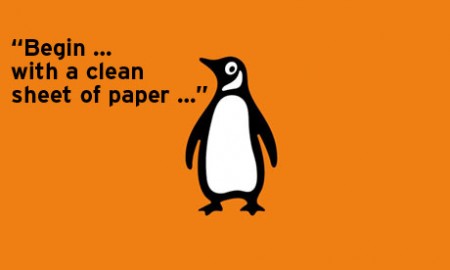December 20, 2012
Penguin settles DOJ lawsuit
by Kelly Burdick
 If you’ve ever wondered if it is possible to collude in settling an antitrust lawsuit: It is.
If you’ve ever wondered if it is possible to collude in settling an antitrust lawsuit: It is.
As announced late Tuesday, Penguin has settled the ebook pricing lawsuit brought by Department of Justice by modifying its agency pricing terms for ebooks to allow retailers to discount the company’s ebooks under certain conditions.
HarperCollins, Hachette, and Simon & Schuster, all of which were targeted by the DOJ and settled their respective lawsuits when the case was first announced, have struck nearly-identical agreements with the DOJ. Presumably Penguin will announce a restitution payment to state governments, which sued on behalf of consumers, shortly.
Where’s collusion come in? The Penguin settlement is widely assumed to be the outcome of pressure from Random House, which plans to merge with Penguin. As the New York Times puts it in its report about the settlement, Penguin is “trying to ensure a clean slate before its planned merger with Random House.” In a statement, Penguin notes that “It is … in everyone’s interests that the proposed Penguin Random House company should begin life with a clean sheet of paper.”
But the merging of the two storied companies will hardly begin with blank paper. Assuming regulatory approval, the proposed Penguin Random House company will be subject to the terms of the Department of Justice settlement—meaning that even though Random House avoided being sued by the Department of Justice, it too will be subject to the settlement terms of the publishers that were.
As Publishers Lunch (subscription required) puts it, “If the merger is approved, Penguin Random House as a whole would have to follow the same operating conditions with respect to ebook sales terms that Penguin alone will follow.” The DOJ’s announcement says simply “Should the proposed joint venture proceed to consummation, the terms of Penguin’s settlement will apply to it.”
The settlement comes with the typical caveats: Penguin insists it did nothing wrong, saying in a statement that “Penguin has always maintained, and continues to maintain, that it has done nothing wrong and has no case to answer.” The proposed settlement is also subject to approval by Judge Denise Cot and a 60-day comment period.
The news undoubtedly caused more cheering at Amazon, which will soon have the power to discount agency ebooks from both Penguin and Random House.
And what will the end of this sad story be? As anyone following the DOJ saga knows, there are only two litigants left standing: Macmillan, headed by John Sargent, who has vowed to fight the lawsuit in court, and Apple, which says it will do the same. Apple can certainly afford to fight: it has $120 billion in cash on hand.
But maybe not. Just a week ago, both Macmillan parent company Holtzbrinck and Apple settled an almost identical European Union lawsuit over pricing of ebooks.
Could the same happen in the U.S., or will we really get the trial we’ve been promised?
Update: No sooner than I asked the question, Macmillan CEO John Sargent sent a letter to authors, illustrators and agents saying that, yes, Macmillan will indeed fight on. According to a Publishers Weekly dispatch, “despite Penguin’s decision to settle with the Department of Justice in its e-book pricing-fixing lawsuit, Macmillan’s position ‘has not changed.’” PW goes on to quote Sargent as saying that “As we heard of each successive publisher settling… the need to support retailers, both digital and bricks and mortar, became more important.” PW also reports that Macmillan has voluntarily modified all but one of its ebook agreements—cutting most-favored nations clauses and allowing some discounting on ebooks priced over $13.99.
Kelly Burdick is the executive editor of Melville House.